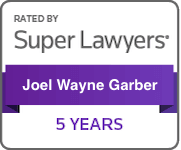What Happens If I Am Not Read My Rights?
June 10, 2020

Today, it is a part of popular culture that when a person is arrested, a police officer will begin telling the suspect, “You have the right to remain silent…” These words begin the list of rights known as the Miranda rights. Some people believe that when the police don’t read them their Miranda rights, it means that any criminal charges filed against them will be dismissed. But that isn’t necessarily the case. Instead, a failure by law enforcement to advise a custodial interrogation suspect of his or her Miranda rights will merely subject any statement the suspect gives to the possibility of being excluded from evidence at trial.
What Are the Miranda Rights?
The Miranda rights, or Miranda warning, arises from the U.S. Supreme Court case of Miranda v. Arizona. In Miranda, the Court ruled that all suspects subjected to custodial interrogation by police had to be advised of their rights, in particular the right against self-incrimination and the right to legal representation, before police could begin an interrogation. The Court has never required certain words to be recited during a Miranda warning. Instead, a Miranda warning only needs to sufficiently inform a suspect of his or her rights. A Miranda warning might be given in the following form: “You have the right to remain silent. Anything you say can be used against you in a court of law. You have the right to an attorney; you have the right to consult with an attorney prior to questioning and to have one present during questioning. If you cannot afford an attorney, one will be appointed to you if you wish. If you choose to answer questions from the police, you have the right to stop the interview at any time”. Officers must also confirm (verbally, and also usually in writing) that a suspect understands his or her rights before proceeding with questioning.
When Do the Police Need to Read My Rights?
Although television and movies make it seem like Miranda warnings are only given when a person is placed under arrest, the law actually requires police to give the warning only prior to commencing a custodial interrogation. If a person is not in police custody (in other words, they are not free to leave police presence), the police are not required to give a Miranda warning, even if they begin asking questions of a person — the police are entitled to walk up to any person and begin asking questions without first administering a Miranda warning, so long as that person is also free to ignore the police’s questions and walk away. In addition, if a person offers information to the police, even if he or she is in custody, before the police have had a chance to administer a Miranda warning and ask questions, those statements are still admissible even though no Miranda warning has been given. If it is unclear whether or not you are in police custody, you can always ask the officer whether you can leave. If the officer tells you that you are not free to leave, you should insist on remaining silent and speaking to an attorney before you decide to answer any of the police’s questions. Every attorney will advise a person to remain silent until they’ve had a chance to speak to an attorney; as trained interrogators, the police are skilled in getting suspects to make unwitting admissions or statements against their interests.
What Happens If the Police Don’t Read Me My Rights?
Under New Jersey law, statements that are made during a custodial interrogation when Miranda warnings are not administered before the police start questioning may be deemed inadmissible in court. All arrestees are to be given Miranda warnings and any invocations of Miranda rights must be honored by the police; continuing to question a suspect after he or she has invoked Miranda rights, especially the right to an attorney, can lead to any subsequent statements from the suspect ruled inadmissible.
Contact an Experienced Voorhees Criminal Defense Lawyer About Your Charges in New Jersey
Were you arrested or charged in New Jersey? The consequences of a conviction could be severe, leaving you with a permanent criminal record and possibly even sending you to jail. That is why you need to speak with a qualified criminal defense attorney as soon as possible about your case. The attorneys at Garber Law, P.C. have successfully represented clients charged in Camden, Cherry Hill, Gloucester Township, Winslow, and throughout New Jersey. Call (856) 435-5800 or fill out the online contact form to schedule a consultation with a member of our legal team. We have an office conveniently located at 1200 Laurel Oak Rd. Voorhees Township, NJ 08043, as well as offices located in Philadelphia, PA.
Garber Law, P.C. Has Achieved Numerous
Multi-Million Dollar Results
Get The Compensation You Deserve!
Settlements and verdicts may vary and are based on the many factors of your case, etc.
(The below information may not apply to your settlement and verdict).
$10 Million Dollars
Settlement During Trial for a Leg Amputation
$10M
AMPUTATION
$5M
TRUCK ACCIDENT
$3M
TRAUMATIC INJURY
$2.2M
CAR ACCIDENT
$1M
SPINAL INJURY
![Quote]()
★
★
★
★
★
Mr. Garber is amazing! He walked me through my lawsuit every step of the way and answered all of my questions. Not only is he a great lawyer, but he was very caring about my feelings and health throughout the whole process. Thank you, Mr. Garber, for everything you’ve done for me, especially for winning my case!Kim C.
★
★
★
★
★
Working with the firm was my best decision. They were extremely helpful and knowledgeable and definitely worked hard for their clients. I would highly recommend them.Linda S.
![Quote]()
★
★
★
★
★
Mr. Garber is simply the best. Very knowledgeable, honest, and helpful throughout the whole process. He has been practicing law for many years and is a true professional in the courtroom. Joel Wayne Garber will fight hard for what you deserve.Joseph P.

















